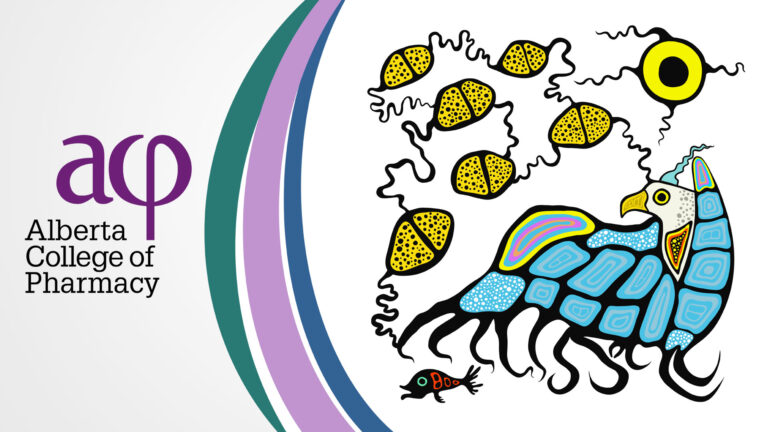
The standards referenced in the article below are out of date as of February 1, 2025. Please refer to ACP’s new standards for up-to-date information.
The principles and the guidelines in the Code of Ethics define “what” pharmacy professionals must be mindful of in their practice. Ethics are the soul of the pharmacy profession, and unethical practices diminish trust and credibility in pharmacists and pharmacy technicians. Just like standards and legislation, our ethical principles are binding, and regulated members are required to comply with them.
As ACP’s complaints director for more than a decade, Jim Krempien has seen a little of everything cross his desk. He has investigated countless issues, but he has found that there is almost always a common thread.
“When we investigate a violation of the standards or legislation, there is almost always an associated breach of the Code of Ethics, or the spirit of it,” said Jim.
Here are a few common ethical issues that appear in pharmacy practice, and some information to help you make the right choice if faced with one of these situations.
Use of health information
Where could I go wrong?
Under the Health Information Act (HIA), pharmacy professionals are designated as custodians of patient information, and principle four of the Code of Ethics requires that pharmacists and pharmacy technicians “Respect each patient’s right to confidentiality.”
The HIA indicates that pharmacists and pharmacy technicians cannot use a patient’s health information without an authorized purpose. It is important to remember that “use” doesn’t necessarily mean the disclosure of information to another party. Simply accessing a patient’s information without an authorized purpose is a breach of the HIA and an ethical violation. The following excerpt from a 2017 Hearing Tribunal decision makes this explicitly clear:
“Pharmacists are entrusted with a significant amount of personal and health information about patients, including personal contact information. It is a fundamental expectation that pharmacists will safeguard that information, and use it only for the purposes for which it was collected.”
Even with a person’s consent, you must only use a person’s health information after a proper professional relationship has been established, and you have an authorized purpose.
How can I avoid it?
All pharmacists and pharmacy technicians should review the ACP publication Helping pharmacists and pharmacy technicians understand the Health Information Act, which was written to clarify the obligations of pharmacy professionals.
Visit the Office of the Information and Privacy Commissioner of Alberta website. In addition to health information resources, this website also provides summaries of recent OIPC investigations and decisions involving health information.
Review and discuss with peers your fundamental ethical obligations. Principles one, four, and 10 of the Code of Ethics will provide you with valuable guidance on this topic.
Boundary issues
Where could I go wrong?
Introduced in 2019, An Act to Protect Patients is an amendment to the Health Professions Act (HPA) that defines the requirement that health professionals not engage in sexual abuse and sexual misconduct. Similarly, principles one through three of the Code of Ethics require that pharmacy professionals
- hold the well-being of each patient to be their primary consideration,
- respect each patient’s autonomy and dignity, and
- maintain a professional relationship with each patient.
“Most pharmacy professionals would never believe that they are capable of committing sexual abuse or misconduct,” said Jim. “But it’s important to remember exactly how these are defined under the Act and addressed in our standards.”
Beyond the obvious prohibition of sexual relationships with patients, An Act to Protect Patients defines many other situations that may be considered sexual abuse and sexual misconduct. These include
- inappropriate words and behaviour of a sexual nature;
- physical contact with patients without their consent;
- providing professional services to spouses, adult interdependent partners, and persons in existing sexual relationships outside of the defined limited circumstances; and
- entering into sexual relations with former patients.
How can I avoid it?
Pharmacy professionals need to consider and clearly understand how the HPA defines sexual abuse and sexual misconduct, especially considering the mandatory discipline laid out therein: automatic and permanent cancellation for sexual abuse and a mandatory suspension for sexual misconduct. To do so, review ACP’s Standards of Practice for Sexual abuse and sexual misconduct, and the Q&A on the ACP website. Ensure you are aware of, and fully compliant with, the restrictions on persons who can, and can not, be your patient. Review principle three of the Code of Ethics.
Collaboration with other healthcare professionals
Where could I go wrong?
ACP’s ethical principles are based on a team approach to patient care, collaborating with other healthcare professionals. While pharmacy professionals have the right to perform certain restricted activities, before doing so they need to consider whether they should do so.
For example, all pharmacists are permitted to adapt prescriptions, but another health professional has already made a prescribing decision for the patient. Following principle one of the Code of Ethics, is simply adapting the best course of action? In a 2015 article for ACP News, registrar Greg Eberhart described the alternative:
“A better practice would be to contact the original prescriber, and discuss the merits of a change in dose, before doing so. This demonstrates collaboration, as compared to simple communication through notification.”
Likewise, a 2018 Hearing Tribunal decision described how a pharmacist “Failed or refused to establish and maintain appropriate professional and collaborative relationships with other health care providers.” In their findings, the Tribunal stated that “Collaborative practice is the foundation of providing patient care in all pharmacy practice settings and when collaboration is discouraged through disrespectful behaviour, patient care is bound to be impaired.”
How can I avoid it?
The three-part series “Just because you can, doesn’t mean that you should!” by registrar Greg Eberhart in the May/June, July/August, and September/October 2015 issues of ACP News is an excellent resource.
Also, a review Code of Ethics principles one, five, 10, and 12 can provide further illustration of this topic.




